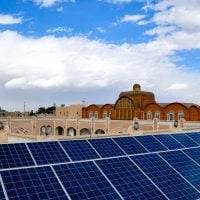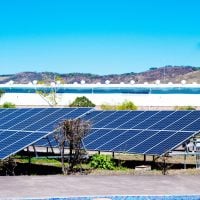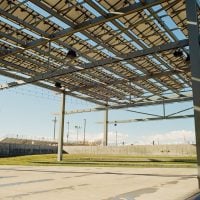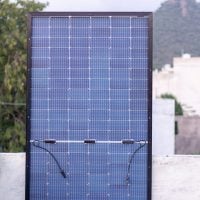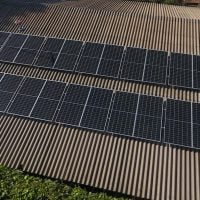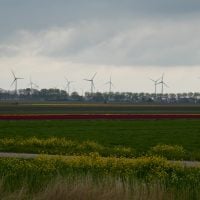Climate-Smart Villages (CSVs) have emerged as a transformative approach to addressing the multifaceted challenges posed by climate change in Africa. These villages serve as experimental hubs where innovative agricultural practices, sustainable resource management, and community engagement converge to enhance food security and resilience. The impact of CSVs is profound, as they not only improve agricultural productivity but also empower local communities to adapt to changing climatic conditions.
By integrating climate-smart practices, such as agroforestry, crop diversification, and water conservation techniques, these villages are witnessing increased yields and improved livelihoods. Moreover, the social fabric of these communities is strengthened through collective action and knowledge sharing. Farmers are encouraged to collaborate, share best practices, and learn from one another, fostering a sense of unity and purpose.
The positive ripple effects extend beyond agriculture; improved food security leads to better nutrition, health outcomes, and economic stability. As a result, CSVs are not just about farming; they represent a holistic approach to community development that addresses environmental sustainability while enhancing the quality of life for residents. Are You Working on Solar Innovation or Clean Energy Access? Join us to receive updates.
Key Takeaways
- Climate-Smart Villages have a positive impact on building climate resilience in African villages, leading to sustainable agriculture and improved livelihoods.
- Understanding the concept of Climate-Smart Villages is crucial for implementing effective strategies to address climate change and its impact on rural communities in Africa.
- Donor funding plays a vital role in supporting Climate-Smart Villages, providing resources for research, technology, and capacity building in African villages.
- Top donors supporting Climate-Smart Villages in Africa include international organizations, governments, and private foundations committed to sustainable development and climate resilience.
- Donor funding for Climate-Smart Village projects is allocated to various initiatives such as climate-resilient agriculture, water management, renewable energy, and community empowerment, contributing to long-term sustainability.
Understanding the Concept of Climate-Smart Villages
At its core, the concept of Climate-Smart Villages revolves around three main pillars: increasing productivity, enhancing resilience, and reducing greenhouse gas emissions. This integrated approach recognizes that agricultural systems must adapt to the realities of climate change while also contributing to mitigation efforts. CSVs are designed to be adaptable and context-specific, taking into account local environmental conditions, cultural practices, and socio-economic factors.
This flexibility allows communities to tailor their strategies to meet their unique challenges and opportunities. The implementation of CSVs often involves a participatory approach, where local farmers, community leaders, and stakeholders are actively engaged in decision-making processes. This inclusivity ensures that the solutions developed are relevant and effective.
For instance, in some regions, farmers may adopt drought-resistant crop varieties or implement rainwater harvesting techniques to cope with erratic rainfall patterns. By fostering innovation and collaboration, CSVs empower communities to take ownership of their development while promoting sustainable agricultural practices that can withstand the impacts of climate change.
The Importance of Donor Funding for Climate-Smart Villages

Donor funding plays a crucial role in the establishment and sustainability of Climate-Smart Villages across Africa. Financial support from international organizations, governments, and philanthropic entities enables the implementation of innovative projects that would otherwise be unattainable for many rural communities. This funding is essential for providing the necessary resources for training programs, infrastructure development, and the dissemination of climate-smart technologies.
Without this financial backing, many communities would struggle to adopt the practices needed to enhance their resilience to climate change. Furthermore, donor funding often catalyzes additional investments from other sources. When donors commit resources to CSV initiatives, it can attract further interest from private sector actors and local governments.
This multiplier effect is vital for scaling up successful interventions and ensuring long-term sustainability. For example, when a donor funds a pilot project demonstrating the effectiveness of agroecological practices, it can lead to increased interest from local authorities in supporting similar initiatives across the region. Thus, donor funding not only provides immediate support but also lays the groundwork for broader systemic change.
The Top Donors Supporting Climate-Smart Villages in Africa
Several key donors have emerged as champions of Climate-Smart Village initiatives in Africa. Organizations such as the International Fund for Agricultural Development (IFAD), the Food and Agriculture Organization (FAO), and various bilateral aid agencies have been instrumental in providing financial resources and technical assistance. These donors recognize the urgent need for climate adaptation strategies in agriculture and have committed significant funding to support CSV projects across the continent.
In addition to traditional funding sources, innovative financing mechanisms are also gaining traction. For instance, climate finance initiatives such as the Green Climate Fund (GCF) are increasingly directing resources toward projects that promote climate resilience in rural communities. These funds are often allocated based on rigorous assessments of project viability and potential impact, ensuring that investments are made in initiatives that demonstrate clear benefits for local populations.
By diversifying funding sources and engaging with a range of donors, CSV projects can secure the necessary resources to thrive.
How Donor Funding is Allocated to Climate-Smart Village Projects
The allocation of donor funding to Climate-Smart Village projects typically follows a structured process that involves project proposal development, evaluation, and approval. Organizations seeking funding must present comprehensive proposals outlining their objectives, methodologies, expected outcomes, and budgetary requirements. This process often includes stakeholder consultations to ensure that community needs are adequately addressed.
Once proposals are submitted, donors conduct thorough evaluations based on criteria such as feasibility, sustainability, and alignment with broader climate goals. Successful projects receive funding that is often disbursed in phases, allowing for monitoring and evaluation at each stage. This phased approach ensures accountability and enables adjustments based on real-time feedback from communities.
Additionally, many donors emphasize the importance of capacity building within funded projects, ensuring that local stakeholders are equipped with the skills and knowledge needed to sustain initiatives beyond the funding period.
The Role of Donors in Promoting Sustainable Agriculture and Climate Resilience

Donors play a pivotal role in promoting sustainable agriculture practices that enhance climate resilience in African villages. By providing financial resources and technical expertise, they enable communities to adopt innovative farming techniques that reduce vulnerability to climate shocks. For instance, donors may support training programs on conservation agriculture or organic farming methods that improve soil health while minimizing environmental degradation.
Moreover, donors often facilitate knowledge exchange between communities facing similar challenges. By connecting farmers with experts and successful practitioners from other regions or countries, they foster an environment of learning and adaptation. This exchange of ideas can lead to the adoption of best practices that significantly improve agricultural productivity while ensuring environmental sustainability.
Ultimately, donor support helps create a more resilient agricultural sector capable of withstanding the impacts of climate change.
Case Studies of Successful Climate-Smart Village Projects Supported by Donors
Numerous case studies illustrate the success of Climate-Smart Village projects supported by donor funding across Africa. One notable example is the CSV initiative in Malawi, where farmers adopted agroforestry practices that integrated trees into their farming systems. With support from IFAD and local NGOs, farmers received training on tree planting techniques and soil management practices.
As a result, they experienced increased crop yields while simultaneously improving biodiversity and soil health. Another compelling case is found in Kenya’s Laikipia County, where a CSV project focused on water conservation techniques such as rainwater harvesting and drip irrigation systems. Funded by various international donors, this initiative empowered local farmers to optimize water use in an arid region prone to droughts.
The project not only improved agricultural productivity but also enhanced community resilience by ensuring a reliable water supply for both crops and livestock.
The Challenges and Opportunities of Donor Funding for Climate-Smart Villages
While donor funding is essential for advancing Climate-Smart Village initiatives, it is not without its challenges. One significant hurdle is the complexity of securing funding due to stringent application processes and competition among various projects. Many grassroots organizations may lack the capacity or resources to navigate these processes effectively, leading to missed opportunities for vital support.
However, these challenges also present opportunities for innovation in funding mechanisms. Collaborative approaches that involve multiple stakeholders—such as public-private partnerships—can enhance resource mobilization efforts. Additionally, capacity-building initiatives aimed at strengthening local organizations’ proposal-writing skills can empower them to access donor funding more effectively.
By addressing these challenges head-on, stakeholders can create a more inclusive funding landscape that supports diverse Climate-Smart Village projects across Africa.
The Future of Donor Support for Climate-Smart Villages in Africa
Looking ahead, the future of donor support for Climate-Smart Villages in Africa appears promising yet requires strategic planning and adaptation to evolving challenges. As climate change continues to impact agricultural systems globally, there will be an increasing demand for innovative solutions that enhance resilience at the community level. Donors will need to prioritize funding for projects that demonstrate scalability and long-term sustainability.
Moreover, integrating technology into CSV initiatives presents an exciting opportunity for enhancing donor support. Digital platforms can facilitate data collection on project outcomes while enabling real-time communication between donors and implementing organizations. This technological integration can streamline reporting processes and improve transparency in fund allocation—ultimately fostering greater trust between donors and communities.
The Collaboration Between Donors, Governments, and Local Communities in Climate-Smart Village Initiatives
Collaboration among donors, governments, and local communities is essential for the success of Climate-Smart Village initiatives. Effective partnerships leverage the strengths of each stakeholder group—donors provide financial resources; governments offer policy support; and local communities contribute knowledge about their unique contexts. This collaborative approach ensures that interventions are relevant and effective while fostering ownership among community members.
For instance, in Ethiopia’s CSV program supported by various international donors, government agencies played a crucial role in facilitating access to land for community-led projects while providing technical assistance on sustainable farming practices. This synergy between different actors has led to successful outcomes in terms of increased agricultural productivity and improved livelihoods for participating households.
How Donors are Making a Difference in Building Climate Resilience in African Villages
Donors are making a significant difference in building climate resilience in African villages through targeted investments in Climate-Smart Village initiatives. By prioritizing funding for projects that address both immediate needs and long-term sustainability goals, they empower communities to adapt effectively to changing climatic conditions. Through training programs on sustainable agricultural practices and resource management techniques, donors equip farmers with the tools necessary to thrive despite environmental challenges.
Additionally, donor support fosters innovation by encouraging experimentation with new technologies and practices tailored to local contexts. As communities implement these solutions successfully, they become models for others facing similar challenges—creating a ripple effect that extends beyond individual villages. Ultimately, through their commitment to supporting Climate-Smart Villages, donors are playing a vital role in shaping a more resilient future for African communities grappling with the impacts of climate change.



